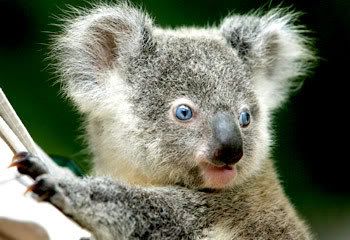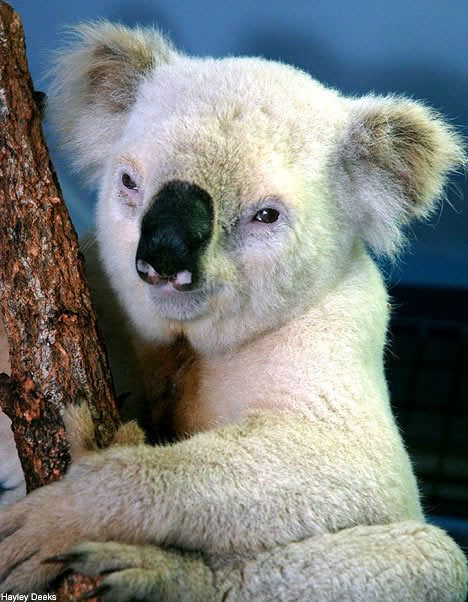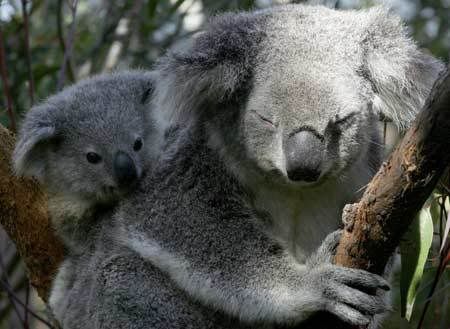 Most of us, by now, know that koala are not really "bears."
Most of us, by now, know that koala are not really "bears."But did you also know that koalas are social animals and can communicate with each other over long distances? But the most important fact about koalas is that the impact of intense urbanization has resulted in the destruction of their habitat, while the attacks of other animals, like domestic dogs and foxes, and traffic accidents, are causing the koala population to decline.
Source: Environmental Graffiti





